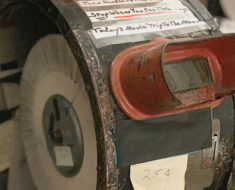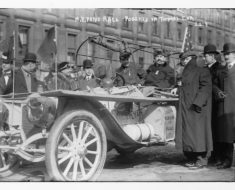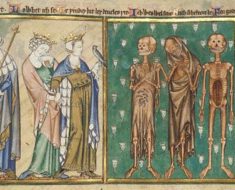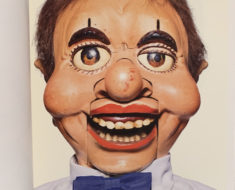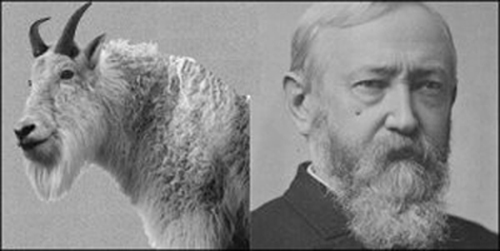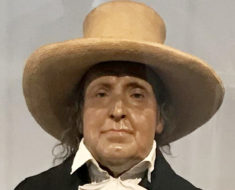Most people with even just a basic knowledge of American politics could tell you that John F. Kennedy defeated Richard Nixon in the 1960 presidential election. But lesser known is the fact that another candidate hoped to take the White House—with the help of men from outer space.
His name was Gabriel Green, hailing from the same town as Richard Nixon: Whittier, California. Green served as the president of the Amalgamated Flying Saucer Clubs of America and in 1959 claimed to have seen more than 75 spaceships in the Los Angeles area. He first met spacemen at his club’s convention that year. They allegedly looked just like earthlings and attended the meetings.
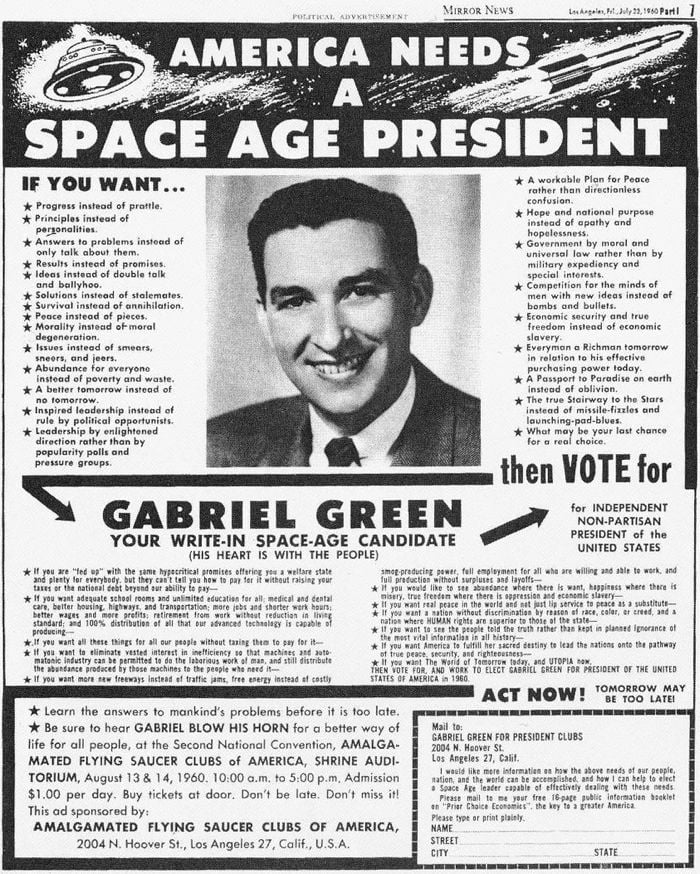
By 1960, at the suggestion of the spacelings, Green organized the Space-Age ticket in an attempt to overtake Nixon and Kennedy for the presidency. Fellow UFO contactee Daniel W. Fry—who, in 1950, claimed to have flown in a remotely controlled UFO from New Mexico to New York City and back in 30 minutes—served as his campaign chairman.
Green explained that space men from Mars, Venus, and Saturn are interested in helping us solve our problems because they solved theirs long ago. They had given him solutions, and allegedly offered the same solutions to other heads of state around the world, but none of them chose to take their advice.
“They could at any time take over our earth between breakfast and lunch and make robots out of all of us,” Green told the press in August 1960. “But this would be against their universal laws and against their principles. They are here to help us help ourselves.”
Among Green’s campaign promises were unlimited education for all, better housing and highways, more jobs and better wages—and all without taxing people for it. He promised “every man a rich man tomorrow” and suggested voters choose if they wanted “A World of Tomorrow Today and Utopia now.”
The idea of peace and prosperity was surely appealing, yet Green knew his odds were slim. His main mission, however, was to get the public on board with his extraterrestrial-backed plan.
“If we are not successful this time, we will have a four-year period in which to campaign and present our plan to the people and by that time the space people assure us we have a very excellent chance of being successful,” Green assured reporters.
Though his candidacy garnered publicity, much of it ridiculed his platform. One reporter sarcastically wrote, “Gabriel isn’t satisfied with promising the moon; he throws in the planets and the whole solar system for good measure,” and added, “… when Jack wants to get wised up on foreign affairs, he has to consult with Adlai … This fellow Gabe just whistles for his flying saucers, takes a flash junket to Mars or Venus and gets the answers from more advanced civilizations … How are you going to beat a deal like that? Nixon and Kennedy ought to withdraw and let Gabe have the White House job by default.”
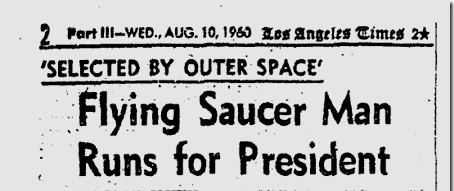
Green’s efforts also rankled the feathers of ufologists making serious attempts to gather evidence and prove the existence of extraterrestrial visitors.
Namely, U.S. Marine Corps Major (Ret.) Donald Keyhoe, who at the time served as director of the National Investigations Committee on Aerial Phenomena. Even before Green’s candidacy, he sent a telegram reading:
“Your carnival approach to the subject of unidentified flying objects is … off-setting serious work by NICAP and other … fact-finding UFO groups.”
Green withdrew by October 1960 and endorsed Kennedy. In a press release, he announced that the “space people” approved his decision and believed that “a Kennedy administration would be more receptive to the new progressive ideas and programs which are needed in order to improve conditions for all the people of the land.”
Kennedy did, of course, build a space program that succeeded in landing men on the moon in 1969, but Green still sought more. In 1972 he ran for president once again, with Fry as his running mate.
With less than two hundred votes, Green once again found little success. If only his outer-space backers were as good at campaigning as they were at interplanetary travel.

